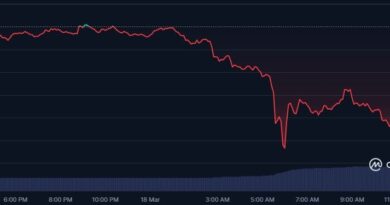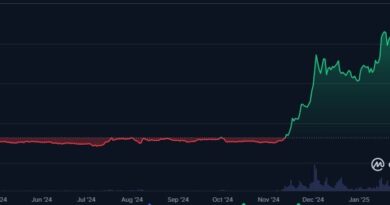Trump’s pledge to make all Bitcoin made in USA faces practical challenges, say experts

Key Takeaways
- Trump advocates for US-based Bitcoin production to enhance energy dominance.
- Currently, less than 50% of Bitcoin mining computational power is based in the US, facing competition from countries like China and Russia.
Share this article
Trump has called for all remaining Bitcoin to be mined in the US, but experts believe practical challenges like global competition and the decentralized nature of Bitcoin could make this nearly impossible.
In June, Trump met with US-based Bitcoin mining executives at Mar-a-Lago to discuss the industry’s potential for job creation and energy dominance. The gathering included representatives from Riot Platforms, MARA Holdings, TeraWulf, CleanSpark, and Core Scientific.
Following the meeting, Trump posted on Truth Social:
“Biden’s hatred of Bitcoin only helps China, Russia, and the Radical Communist Left. We want all the remaining Bitcoin to be MADE IN THE USA!!! It will help us be ENERGY DOMINANT.”
After making his initial pledge, Trump has continued to stress his commitment to domestic Bitcoin production. He has stated in later engagements that if crypto is meant to define the future, he wants it to be mined in the US.
Experts, however, are skeptical about the feasibility of Trump’s promise.
“It is a Trump-like comment but it is definitely not in reality,” Ethan Vera, chief operating officer at Seattle-based Luxor Technology, which provides software and services to miners, told Bloomberg.
As approximately 95% of Bitcoin’s total supply of 21 million has already been mined, exerting control over future production presents considerable challenges.
Not only that, ongoing global competition makes it difficult for the US to dominate Bitcoin production, according to Taras Kulyk, chief executive of Synteq Digital. US-based miners currently account for less than 50% of the total computational power used in Bitcoin mining.
Meanwhile, countries like China, Kazakhstan, and Russia, often benefiting from lower energy costs and less regulatory scrutiny, have become home to major Bitcoin mining operations.
Russia recently introduced a legal framework that defines the rights and obligations of miners. The law, signed by President Vladimir Putin, recognizes mining as a legitimate economic activity and allows registered legal entities and individual entrepreneurs to engage in it.
The decentralized nature of Bitcoin allows miners worldwide to participate in transaction validation and the creation of coins. Countries with cheaper energy sources, including emerging markets in Africa like Ethiopia, are becoming attractive locations for mining operations.
The President-elect has proposed high tariffs on Chinese imports, claiming that such measures would protect American industries and jobs. If he follows through with these tariffs, it would increase costs for American miners who depend on Bitcoin mining equipment coming from China.
As a result, US miners might struggle to compete globally because their operational costs would be higher.
Share this article



